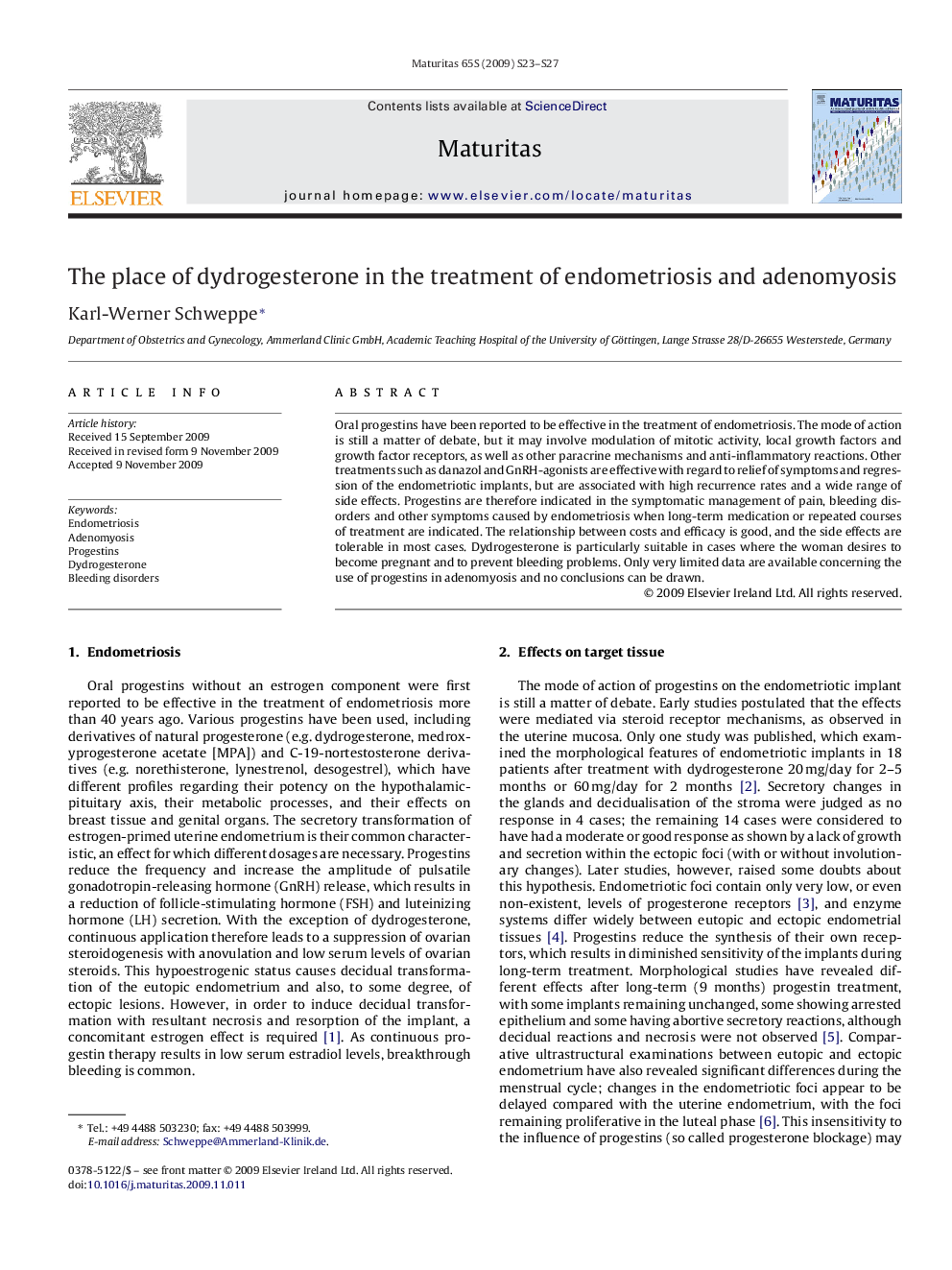| Article ID | Journal | Published Year | Pages | File Type |
|---|---|---|---|---|
| 1918223 | Maturitas | 2009 | 5 Pages |
Oral progestins have been reported to be effective in the treatment of endometriosis. The mode of action is still a matter of debate, but it may involve modulation of mitotic activity, local growth factors and growth factor receptors, as well as other paracrine mechanisms and anti-inflammatory reactions. Other treatments such as danazol and GnRH-agonists are effective with regard to relief of symptoms and regression of the endometriotic implants, but are associated with high recurrence rates and a wide range of side effects. Progestins are therefore indicated in the symptomatic management of pain, bleeding disorders and other symptoms caused by endometriosis when long-term medication or repeated courses of treatment are indicated. The relationship between costs and efficacy is good, and the side effects are tolerable in most cases. Dydrogesterone is particularly suitable in cases where the woman desires to become pregnant and to prevent bleeding problems. Only very limited data are available concerning the use of progestins in adenomyosis and no conclusions can be drawn.
